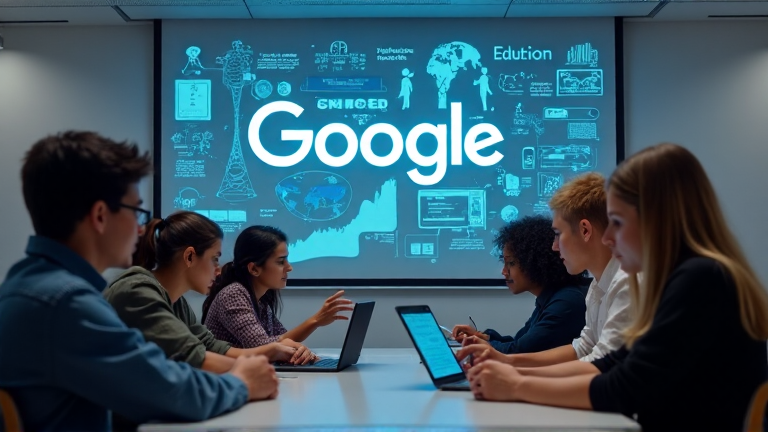
Google Aims to Demystify AI and Shift Public Perception
As artificial intelligence (AI) continues to dominate the tech landscape, it has also sparked widespread skepticism and apprehension. In response, Google has launched a global initiative to educate the public about the potential benefits of AI, dispelling fears that it is a looming threat. In September 2024, the tech giant allocated a $120 million budget to fund these educational efforts, targeting consumers, workers, and policymakers alike.
Why the Need for AI Education?
Google believes that much of the distrust surrounding AI stems from its novelty. As a groundbreaking technology, AI is often met with resistance simply because it is unfamiliar. By raising awareness of its capabilities, Google hopes to shift public perception and highlight the transformative opportunities AI offers.
A Strategic Move Amid Legal Challenges
While the initiative appears altruistic, it may also serve as a strategic maneuver. Google is currently embroiled in a significant antitrust lawsuit, which could force the company to divest its Chrome browser and alter its search engine operations. One of the allegations in the case is that Google's use of its AI model, Gemini, to summarize search results has drastically reduced website traffic.
By educating lawmakers and consumers about AI, Google may be attempting to justify its business practices and demonstrate their fairness. The company has also addressed concerns about AI-driven workforce disruptions, acknowledging layoffs but emphasizing the potential for positive outcomes.
"There’s a lot of upside in terms of helping people who may be displaced by this. We do want to focus on that." — Kent Walker, President of Global Affairs at Google, Reuters
Consumer Pushback Against AI Integration
Despite Google's efforts, public sentiment toward AI remains largely negative. Recent product launches by Apple and Samsung, which heavily emphasized AI features, were met with disappointment. Many users have expressed indifference toward AI integration in their devices, with some even dismissing it as a passing trend.
For instance, the Galaxy S25's primary selling point is its AI capabilities, yet consumers continue to demand other upgrades, such as improved hardware or battery life. This disconnect has created a tense dynamic between tech companies and their customers.
The Future of AI: Gimmick or Game-Changer?
While skepticism persists, AI has the potential to revolutionize computing if harnessed effectively. Google's educational campaign could play a pivotal role in shaping public opinion. However, whether these efforts will succeed in swaying the masses or fall flat remains to be seen.
In the meantime, the tech industry finds itself at a crossroads, balancing innovation with consumer demands. As AI continues to evolve, its true impact—and public reception—will ultimately determine its place in the future of technology.
Note: This publication was rewritten using AI. The content was based on the original source linked above.